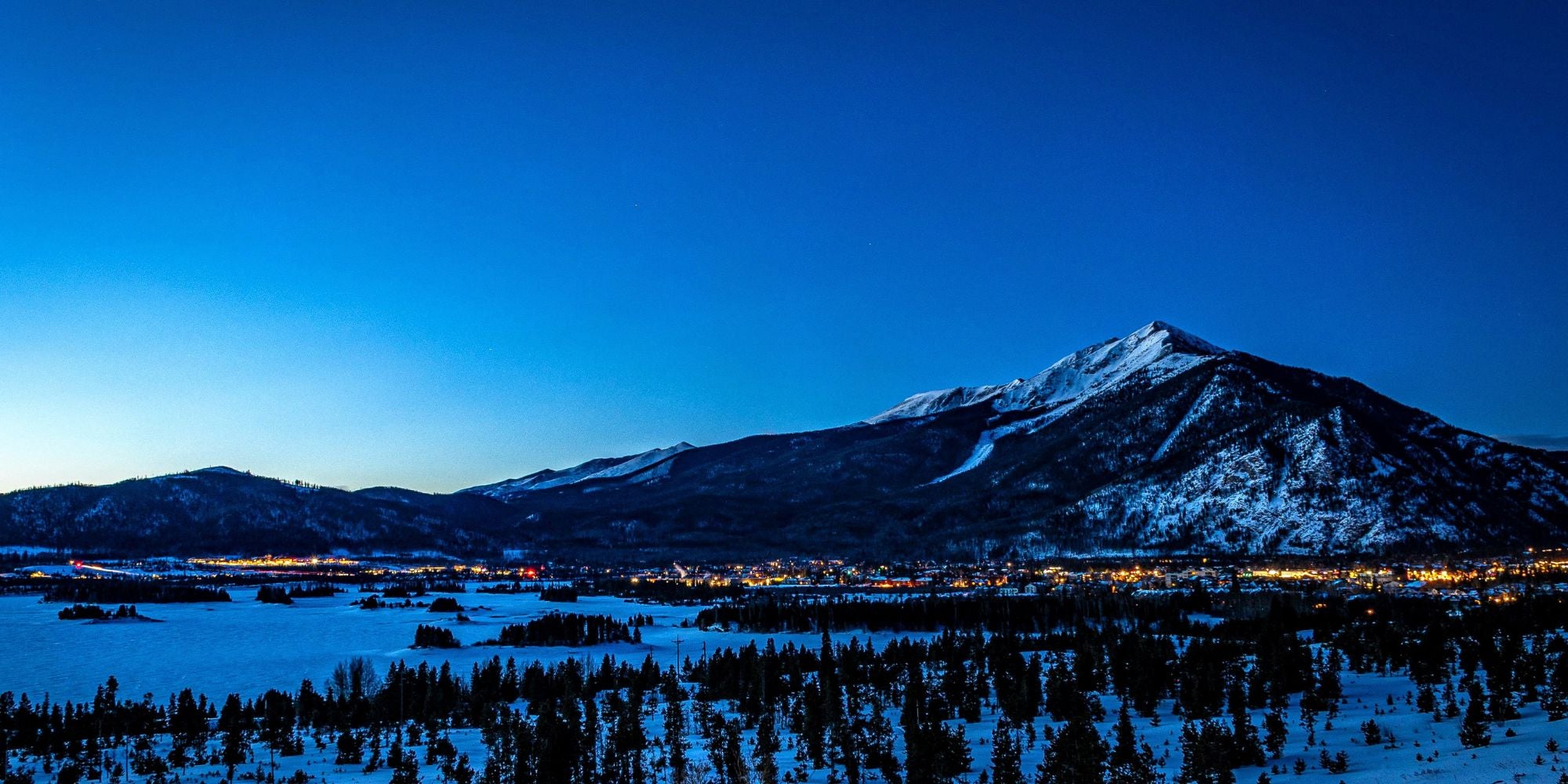
If you have ever been to Colorado and experienced the altitude sickness, then you know how miserable it can be. To make it easier to enjoy your vacation in Frisco, the following is a guide is all about altitude of Frisco Colorado and our top tips how to avoid the altitude sickness.
Altitude Frisco Colorado sits at 9,097 feet above sea level. Neighbors to Breckenridge, Frisco is a popular town among skiers and mountain travelers because of its convenient location.
While Frisco doesn't host it's own ski resort, it's in the middle of many resorts and other popular destinations. This includes the world famous Breckenridge Ski Resort, Copper Mountain Ski Resort, Lake Dillon (Dillon Reservoir), and many 14ers (mountains over 14,000 feet). Being only a short drive from Denver to Frisco, about an hour and a half, Frisco is a great place to stay for all your outdoor adventures and activities.
These elevations are considered high altitudes, and we recommend taking precautions with regards to altitude sickness.
Yes, you can get altitude sickness in Frisco CO.
University of Michigan states that altitude sickness can start at 6,000 feet.⁷ Even in Denver at 5,280 feet, some visitors get altitude sickness. Jump up to 9,097 feet of elevation in Frisco, and you have a much higher chance of getting altitude sickness.
Altitude sickness can occur when you ascend to a higher altitude, and your body has trouble adjusting to the low oxygen levels causing hypoxia.
Altitude sickness is a common problem at the higher altitudes of the Colorado Rocky Mountains. It can afflict anyone who travels to these high elevations, whether you are a local or a visitor with symptoms including headaches, nausea, vomiting, rapid pulse and shortness of breath.
High altitudes causes physiological stress on the body including oxidative stress, and with the dry climate of Colorado and increased respiration at higher elevations, dehydration can be a problem too.
Frisco CO altitude sickness symptoms include:
Altitude sickness symptoms usually appear within 24 hours upon arrival. If you're planning on visiting Frisco Colorado, we share our top researched tips below on how to avoid the altitude sickness there.
Frisco Colorado is an amazing scenic destination in Colorado, also one of the highest towns at 9,097 feet where altitude sickness is common.
Being based in Colorado with a lot of altitude experience, we'll share with you our best and most researched tips to help you avoid Frisco CO altitude sickness.
Here's Six Tips To Avoid Frisco CO Altitude Sickness:

Our chewable supplement is specifically formulated to help you perform at your best no matter what the elevation. Popularized in Colorado, Zaca is perfect for use by any mountain climbers, hikers, skiers, athletes, and travelers. These fast-acting chewables are a potent antioxidant with glutathione, and help you rehydrate, replenish, and recover. Simply take 2-4 chewables each day, or as needed during activities. Try Zaca chewable tablets today and enhance your mountain performance.
SOURCES:
1. Frisco, Colorado Elevation
https://en.wikipedia.org/wiki/Frisco,_Colorado
2. Breckenridge Ski Resort Elevation
https://en.wikipedia.org/wiki/Breckenridge_Ski_Resort
3. Copper Mountain Elevation
https://en.wikipedia.org/wiki/Copper_Mountain_(Colorado)
4. Dillon Reservoir Elevation
https://en.wikipedia.org/wiki/Dillon_Reservoir
5. Silverthorne Colorado Elevation
https://en.wikipedia.org/wiki/Silverthorne,_Colorado
6. White River National Forest Elevation
https://en.wikipedia.org/wiki/White_River_National_Forest
7. Altitude Sickness University Of Michigan Health Service
https://uhs.umich.edu/travel-altitude-sickness
8. Why Do You Need to Drink a Lot of Water at a High Altitude?
https://www.livestrong.com/article/360485-how-to-train-for-high-altitude-hiking/
9. Sleep: The Secret Ingredient of Injury Recovery
https://www.orthocarolina.com/media/sleep-the-secret-ingredient-of-injury-recovery
10. Effects of Alcohol
https://www.ahajournals.org/doi/full/10.1161/01.HYP.29.6.1278#
11. High altitude and oxidative stress
https://pubmed.ncbi.nlm.nih.gov/17482529/
12. Effect of high altitude (7,620 m) exposure on glutathione
https://pubmed.ncbi.nlm.nih.gov/11320641/
13. Frisco Elevation Colorado Rockies
https://www.friscogov.com/your-government/maps/
Copy the coupon code & use it at checkout